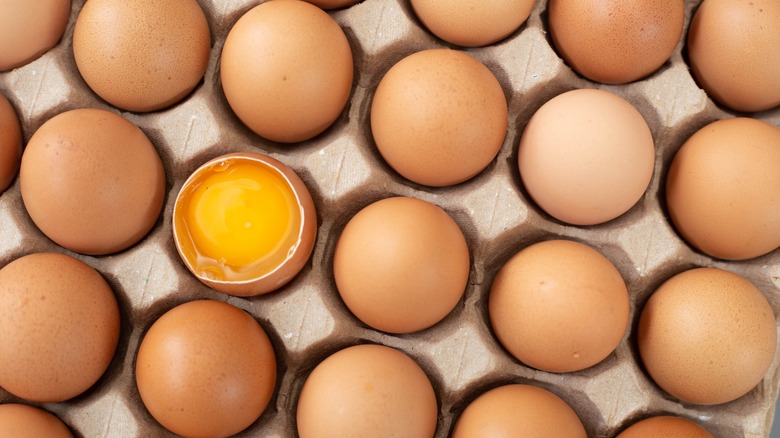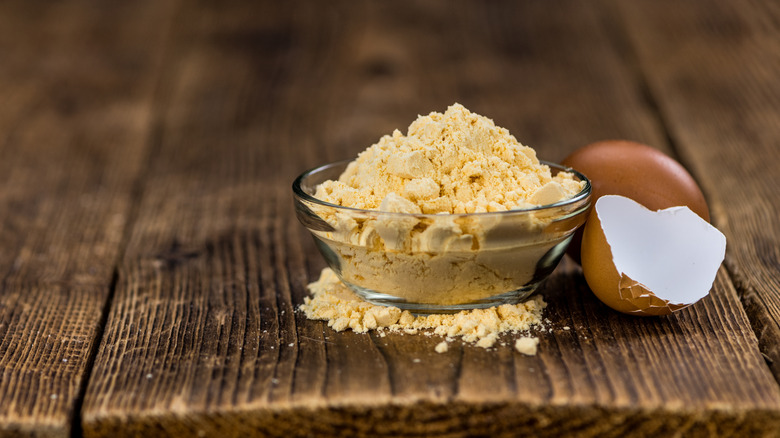You Should Be Dehydrating Your Eggs At Home
Dehydration can be an excellent way to preserve a surplus of fresh produce and extend its shelf life. Fruits and vegetables take particularly well to dehydration as do lean meats, herbs, syrups, and sauces. But, did you know that even eggs can be dehydrated at home? According to retired university professors Jim and Pam behind the YouTube channel RoseRed Homestead, eggs can be dehydrated using two different methods. They can either be cooked and scrambled before being popped into a dehydrator or, you could give raw eggs — both whites and yolks — a quick spin in a blender, pop the liquid into a dehydrator, and then blitz the dehydrated eggs into a fine powder.
If you prefer to dehydrate raw eggs rather than scrambled ones, the only thing to be mindful of is the risk of salmonella. To kill salmonella, egg-based dishes without any meat or poultry should be cooked till the internal temperature reaches 160F which means, you should dehydrate the eggs at a temperature of 160F or higher (via Centers For Disease Control And Prevention). However, RoseRed Homestead says that raw eggs begin to coagulate at 140F which is why they recommend dehydrating eggs at a temperature of 140 or lower and then cooking them at a higher temperature once you're ready to eat.
How to use dehydrated egg powder
Not only can dehydrated egg powder be used the same way as you would raw eggs, but there's no difference in the protein content between the two. Dehydration only removes egg powder's fat content and cholesterol as well as lowers its calorie count. Egg powder, however, does tend to have more sodium than fresh eggs and has the same profile of vitamins and minerals albeit in lower quantities.
Where fresh eggs have a shelf life of three to five weeks when stored in a refrigerator, eggs dehydrated at home will stay fresh for at least a year or two. The dehydrated egg powder can then be added directly into soups to thicken them or folded into meatballs and burger patties to help bind the meat. Alternatively, dehydrated raw eggs can be rehydrated with water and turned into fluffy omelets and smooth scrambles. It can also be used to make French toast, added to bakes and batters, or cooked in pretty much any way as you would fresh egg whites and yolks whisked together. To rehydrate the egg, mix two tablespoons of water with one tablespoon of dehydrated egg powder per egg that you want to cook. Allow the mixture to sit for five minutes or so, and the rehydrated egg will be ready to hit the pan.

